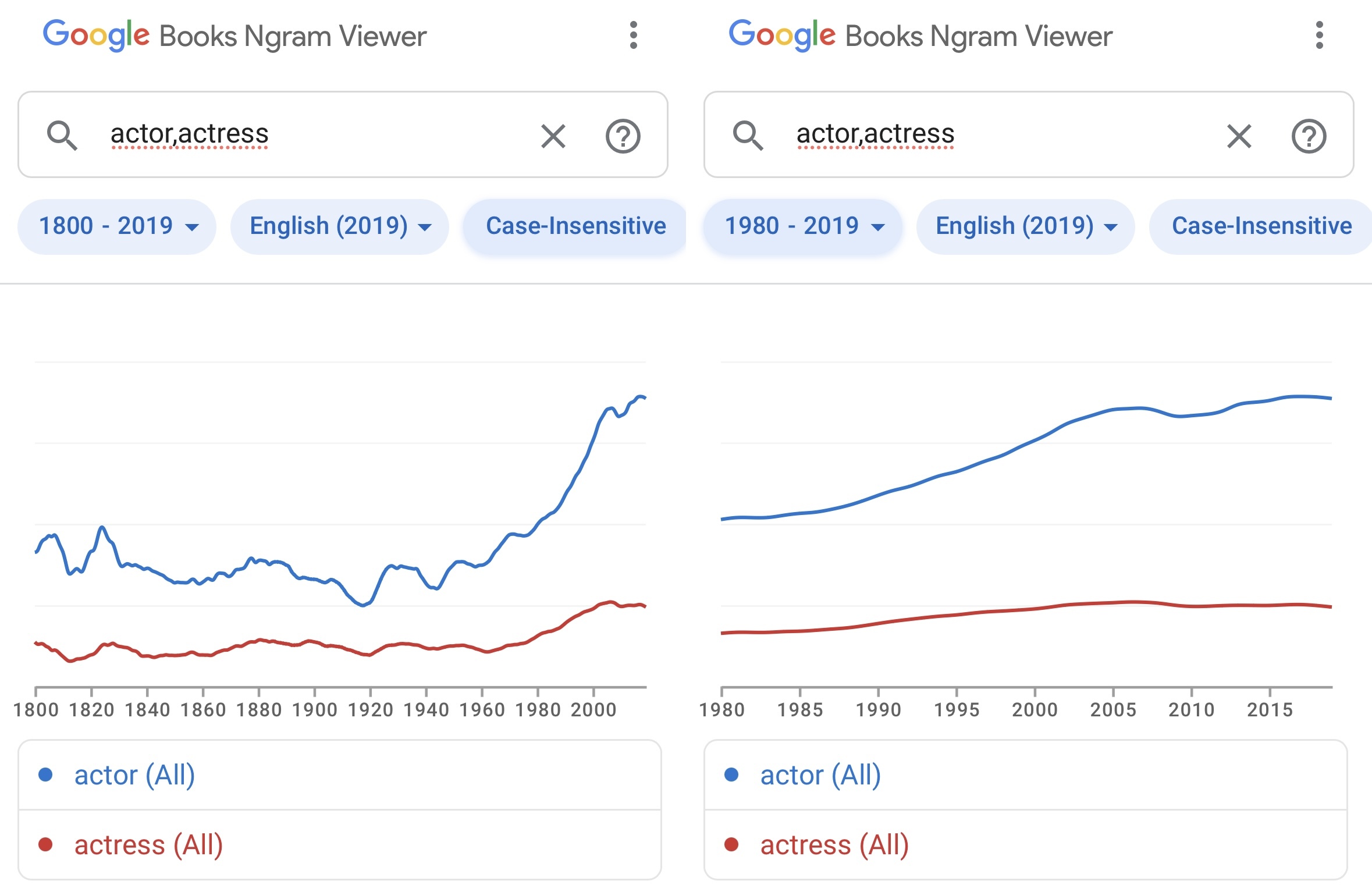Just wait until you look into French numbers.
How different languages say 97:
🇬🇧: 90+7 (ok, there is some jank in English numbers - 13-19 are in line with the Germanic pronunciation, i.e. pronounced “right to left”, as a weird hold-over from the more Germanic Old English)
🇪🇸: 90+7
🇩🇪: 7+90
🇫🇷: 4x20+10+7
And if you think that’s bad, the Danes actually make the French look sane…
🇩🇰: 7+(-½+5)x20
Even Danes generally don’t really know why their numbers are like that, they just remember and go along with it.
You know everytime your mention French number, there is always belgian or Swiss who will tell you :
🇧🇪🇨🇭: 90+7
☝️🤓
please… french swiss…
what the actual fuck is wrong with you, denmark?
…whats not?
Cope hagen?
While learning Danish I figured out that’s just the arcane incantation for the number. It’s language juju, and you just have to know that it be like it do. Yes, it’s syv og halvfems, but the reason behind it doesn’t matter anymore. The rest of the double digit numbers are a mess as well; 30 is tredive (three tens in old norse) but starting with 50 it’s this weird score (20) and half-to-score system.
When I first started learning my brain was desperately trying to make heads or tails of it and rationalize it somehow. And then I realized that was stupid, abandoned reason, and now I just utter these backwards ass numbers and we all nod and everyone is happy lol. Language is weird.
That’s not real. I refuse to believe that.
It is, but we just say seven and half fives these days. Everybody knows the twenty are implied…
I can’t stop giggling about the Danish way of saying that. Like, I don’t even understand how that’s 90? LMAO.
I think Finnish would be
🇫🇮: 9•10+7
Nine-tens seven
Same for Japanese
🇯🇵: 9•10+7
九(kyuu) 十(juu) 七(nana)
Also, similar to English, 20 does not follow the pattern but instead has its own word. (Still written as 2•10 though)
Where do you think nine-ty in English comes from?
I think it comes from nine-tens. But if you check, that commenter didn’t write it so.
Meanwhile in CJK languages we just chill and say
9 x 10 + 7. Why doesn’t everyone do that?I guess “ninety” likely stems from “nine tens”, so I guess English isn’t far off
https://youtu.be/s-mOy8VUEBk?si=1dudvGSjUd9VI11D
🇩🇰🫡
It’s not easy running an isenkramstornunung when nobody remembers what anything is called
An absolute classic that I watch every single time. Kamelåså!
I don’t know what he gave me, but it was wrong 🤷🏻♂️
Cough, Though, Through (+ Threw), Thorough, Rough, Thought, Ought, Tough.
Don’t forget trough!
deleted by creator
is that like how you have to memorize every single articels (der, die, das) for every word in german?
Exactly, gendered langage. But French has only two genders, no neutral like German. And the washing machine is a Lady, any machine btw :)
But at least pronunciation is mostly consistent.
In English two words can be written almost exactly the same but sound wildly different.
Looking at you, words with “ough”And then there’s the wars about der/die/das Nutella :>
Due to the increased acceptance of non-conforming identities, it’s become more prevalent to either ask for pronouns, tell them to a person you meet, or have them somewhere visible in things like gameshows.
That’s quite as silly to me as this whole “what gender is this washing machine” nonsense is to English-speaking people.
Here in Finland, we don’t have gendered language. Even with third person pronouns, we usually default to “it” instead of “him/her/they”. Except for pets. They always get the proper pronoun “hän”. It’s just respectful.
So yeah, just like the English wonder why they have to learn different words for something needlessly gendered in France, I too, as a Finn, wonder why I have to learn different words for something needlessly gendered in English.
Right or wrong, calling a person “it” in English is incredibly disrespectful
We could do with something though. ‘Them’ doesn’t really cut it as it’s not clear if it’s plural or singular. ‘It’ is insulting.
If there was a good one, I’d just use it all the time for everyone. Why should gender be so important to identity? Isn’t it a regression to be so hungup on gender?
Singular “They” is literally almost as old as the word “They” itself.
People have gotten by using it for almost 700 years.
It’s not clear when you say they if you mean a person or a group. The term is for both. It’s ambiguous.
It’s not. Context provides you all the needed info in 99.9% of cases.
- “Alex is coming over after school, I haven’t seen them in forever.” Obviously means a single person.
- “There’s construction going on? When will they be done?” Honestly doesn’t matter but obviously means a group of people.
Sure, you need to provide context, but you’d need to with a pronoun anyway.
- “Where is she?” Who the heck is “she”?
- “What time is he finished with work?” Who are we talking about?…
You’re essentially looking at the words singular and plural definitions and coming up with a reason they don’t work. (Hey, another “they” and I’m sure you picked up on the fact that I’m not talking about a singular human.)
Can you even think of a situation that has ambiguity, which would actually come up in natural language?
Really easy and you know it. Of top of my head:
“Get who wrote this rubbish in here.” “I’ve message them. They are coming to the meeting now.” “You mean a team or an individual did this?”
It does depend how pedantic you want to be. I’ll dyslexic and I don’t process language like others and so I don’t like ambiguous. My default interpretation is frequently different. Human language has enough ambiguousness as it is. I’d like it reduced ideally.
“Who wrote this rubbish” is already ambiguous from the start, since it can be a singular author, or multiple. I admit they/them didn’t help resolve that ambiguity, but it isn’t the cause.
’Them’ doesn’t really cut it as it’s not clear if it’s plural or singular.
Beyond the other reply about the history of the singular “they,” we also have another prominent plural pronoun we use in the singular all the time. So often we don’t even think about it as being plural anymore. So much so that we’ve created new plural versions of this already plural pronoun.
“You.”
“You” was originally the objective case plural 2nd person pronoun in English, with “ye” being the nominative.
But “thou” was considered informal, like the German “du” or the Spanish “tú,” and the plural 2nd person was used as the formal. And this eventually supplanted “thou” completely.
And now we think of “you” as singular to the point where we make slang words like “y’all” and “yous” to have a plural.
It’s hard to force language to evolve in a specific direction.
I’m a native English speaker and I’ve used “they” as a singular third person neutral pronoun since before I even knew anything about trans or nonbinary people. It’s commonly accepted and not at all unusual usage, at least in American English where I grew up.
It’s fine to use it singular, but it’s also fine to use it as plural. All you know is it’s not zero persons.
I’d be happy with ‘xe’ for gender neutral single-person pronoun. And for awhile I was using that from time to time - but because its rare and people aren’t use to it, using it is a distraction from what you actually are trying to talk about. I’ve stopped using it because I don’t really want to talk about it over and over. Sometimes people find it confusing. Sometime people are just curious. And some people find aggravating (because they don’t like the idea of degendering or changing genders).
I don’t mind the concept of a degendeted pronoun, but I would vote against “xe”. Just find it unpleasant to use the “x” sound so much. Don’t know what I would like, just x makes it extra weird on top of the “weirdness” of trying to explicitly evolve language.
Sure. And as with a lot of English, it isn’t totally clear has ‘xe’ is even meant to be pronounced. (I assume like ‘ze’).
Perhaps a nicer sounding version would be ‘ce’. Or whatever. To be honest, it really doesn’t matter to me. I’d be happy to just call literally everyone “she” or “he” or whatever. I’d suggest that we just use “he” for all genders, because many people on the internet seem to be doing that anyway; but obviously that would be upsetting to people who have been fighting for gender recognition. Pushing for “she” might be a bit better, but not by a lot. … So we’re probably in this mess for a long time. But I reckon if we just shake it up just a little bit as individuals, using different words and such, we’ll eventually start to see something change more widely.
In my mind I’ve always pronounced “xe” with the X sounding like the latter half of the letter said aloud, followed by the letter E.
Though I just looked it up and “zee” is the correct pronunciation.
If you get aggravated being degendering, or of others changing gender, it makes me think you are insecure about your gender. They should get over it. ‘xe’ would be good, but I don’t see it taking off with being popularizied some how. Some popular TV show or something.
Which is why I never do, obviously.
This is one of those things that, if translated directly, would be really, really bad.
Now I’ve spoken English for more than a quarter century, so my mouths used to it already, but I remember when learning the language, it was rather hard for the brain to keep switching between “he” and “she”, as it was not a distinction my brain had to make before using English.
I mean obviously I could differentiate women and men, but having to use different pronouns for both?
Quite needless.
I think they maybe meant the gender neutral they/them, which we turn to “it” for the inanimate?
Edit: on second read I’m not sure
I do mean that we Finns use “se” very often in everyday speech to refer yo other human beings, and “se” would translate as “it.”
Ofc I’m aware how horrible using “it” when referring yo people would be in English.
But if someone asked me to translate a sentence like “mihin se [a person] meni”, I would ofc not use a direct translation because of how offensive and wrong it would be.
I respect the distinctions languages have for genders, but I’m happy I grew up with one which didn’t have them. Language shapes thought. We don’t think of people as “it”, it’s just the colloquial form of the language.
In Finnish, if you had to give a formal speech or something, most people realise to default to “hän”, the 3rd person singular.
And if you’re doing customer service or addressing someone with the sort of respect you’d use titles with in English. Then you’d address the person in the second person plural instead of the second person singular.
Just like English did hundreds of years ago, and it worked so well that in the end, English left the second person singular out of the language altogether. It still exists, but isn’t really used unless thou wants to pretend being from Elizabethan Britain.
Yeah I don’t see anyone accepting being called “it” in English; that’s how you refer to farm animals bound for slaughter or undesirable ethnicities you’re going to exterminate.
Why would anyone ever want to try using “it” for people in English unless they’re purposefully trying to demean someone… ?
Sorry, I wasn’t trying to say that’s what English should do. I was describing what Finnish does.
I’m pointing out that lots of languages have less gender distinctions than English, so English calling French out on gendered nouns is rather silly.
My point is that despite Finland having a perfectly good third person singular for people, we usually use the even more general one, which is just for anything. Except when talking to and about pets, because then somehow everyone uses less colloquial language.
While English has a perfectly good second person singular, but doesn’t even use it anymore.
You can’t have more third person singulars before you finish your second person singulars, that’s the rule. Now open up!
My point is that despite Finland having a perfectly good third person singular for people we usually use the even more general one
The reason for that is because “se” as strictly a “thing” pronoun is artificial “book language”. When standard literary Finnish was being developed in the 19th century, its inventors wanted to have a person/thing distinction in pronouns like the “civilized” languages had, so they arbitrarily assigned “hän” as a person pronoun and “se” as a thing pronoun. That distinction is artificial, and has never stuck in spoken Finnish.
Originally there was a difference between “hän” and “se”, but it was grammatical: se was the general third person pronoun, hän referred back to the speaker (logophoric pronoun). Compare:
- Antti sanoi, että se tulee. (Antti said that someone else will come.)
- Antti sanoi, että hän tulee. (Antti said that he himself will come.)
You speak an uralic language, brother. Gender orno gender, having to learn a billion rules for conjugation is the problem there
First, I’d like to identify Finnish as a Finno-Ugric language, more than a uralic one, because “uralic” is very broad, just like, say, “Indo-European languages”. There’s several distinction within both groups.
But yeah, there are quite a lot of grammatical cases, I can see that yeah. I wouldn’t bother learning Finnish if I wasn’t born with it, lol.
My point is rather that English calling French out on something linguistic. English is three languages in a trenchcoat masquerading as one.
But also, getting the conjugation wrong won’t really be offensive to anyone, whereas confusing he/she just because your brain is unused to having to specify such things and your mouth is unused to the “sh” sound in she, and ending up misgendering someone, could be. Even accidentally.
“She sells seashells on the seashore” is a very challenging tongue twister for Finns.
Also, note how I can write a sentence like “hän menee kirjastoon”, meaning “[3rd person nongendered singular] goes to the library”, but if you run that through a translator to English, the translator will have to make up a gender. And not surprisingly, the default is the masculine one. (Down with the patriarchy and all that.)
Although this also means you’ll lose information when translating to Finnish. Ups and downs.
“Je voudrais un baguette” I once asked in a parisian boulangerie. I don’t think anyone has looked at me with the same level of disgust before as the older lady selling the breads.
“Voilà, une baguette.”, the “une” flying through me like an icicle.
“Stupid fucking foreigner thinking my bread has a dick…”
Tucke Carlso liked your comment

Why does he look like someone just shoved a vacuum hose up his ass and turned on the vacuum.
I remember standing in line for crepes in Le Havre, I just had my first year of French in school and I was practicing how to order in my head, nervously repeating “un crepe avec sucre”, and killed myself over not remembering the gender of crepe. So it’s finally my turn in line and I order nervously (I am 13 years old) and they reply with “pancake with sugar, no problem” and I’m just like 😭
Somehow people not even giving you a chance to practice your language skills is awful
“Jay parlay France-says tray bee-en! Jaytude France-says pour treys anss in laycole!”
I was in Quebec, and the locals kept trying to talk to me in French. I can technically understand French, but not at those speeds. I only had to say that phrase once to anyone, and they immediately switched to English and begged me to not speak French again. If you sound like Peggy Hill attempting to speak French, then you’ve nailed this phrase.
Québécois is a whole other can of worms.
Damn French, une crêpe and a pancake are not the same thing!
Seriously. It’s pretty discouraging and off-putting. Although, when I was in the Aquitaine I don’t think I got any of that.
… Maybe it’s because they remember being under English management and don’t want to give anyone an excuse?
I do find the French have very little ability to understand their language if it’s getting mangled.
I think it’s just taking the easy, accommodating and safe route mostly.
A friend of mine taught himself German for years (he lives in Canada) and then, eager to put his knowledge into practice, went to Germany for three weeks. Whenever he attempted to speak German, people would reply in English - out of niceness.
He was so depressed and discouraged, he went home, vowed to never speak German again, taught himself Russian, went to Russia for a semester, people there were happy to speak Russian with him. He even met his future wife there, so it’s a happy end I guess.
I don’t remember if I ever heard him speak German (after all, he vowed and was still very hurt), but if his German was just half as good as his Russian, he should have had no problem with being understood.
James, in case you read this, St. Petersburg was freaking awesome and you freaking rock.
Assigning gender to words is fucking stupid and adds unnecessary extra complexity to the language without any gaining any additional meaning. Personally I have no time for it.
The old lady was a huge asshole. That’s the problem. And being in Paris.
My solution is replacing all les/la/l’ with a vaguely sounding “ll” sound.
I get the odd scathing look.
And occasionally someone will stop the conversation, and ask me to use the correct word, fully away of the shit I’m trying to pull.Baguettes are distinctly penis shaped, so the French are just wrong about that.
Does this mean i’m gay ?
Not in itself but it is another data point for the theory. I suggest testing in controlled conditions many times despite it being a pain in the ass.
Ah the double entendre! Nicely done lol
Just wait to learn how we gender “dick” and “cunt” in French (hint: it’s not the way you’d think).
It’s the one thing people who aren’t fluent in a gendered language usually fail to grasp: Grammatical gender is in most situations completely separate from social gender. The grammatical gender in “une bite” has absolutely no social function and is not in any way contradictory to its traditionally opposite social gender.
Ironically it’s also why using the wrong grammatical gender feels so wrong/unnatural to a native speaker (not that it’s an excuse to be a dick to non-native speakers ofc): gender is not just “a social concept attached to a word”, it is an inherent property of the word that matters fundamentally to sentence structure and so misusing it throws everything off-balance. Francophones will much sooner accept someone close to them being trans than baguettes being male, and this is not a hyperbole.
Uh? I’m Portuguese and it works in the same in my language. I don’t know what the big deal is. You get the gender by the arti…
Oh…
We also don’t have 13 different words for I (glances at Japan)
Not the worst example for Japanese. The verb kakeru 掛ける is very common and has ~25 different meanings. This is before you count the other verbs also pronounced as kakeru such as 翔ける、賭ける etc
How many definitions does the English word “set” have?
And “get”!
Yeah but we win, we Can Say “putain” in any situation. It will Always work.
C’est une putain de bonne idée pour apprendre ce putain de langage, putain
It can be argued that most of the different meanings arise from different contexts and how the speakers associate that particular word to different uses. When an English speaker uses the word save, it can mean either “save a person from danger”, “save a computer file”, and many others, which can have different meaning-translations to other languages.
deleted by creator
Say what you will, exam nightmares are real
I’m trying to figure out why I keep having dreams where I find out I somehow accidentally didn’t finish high school and have to go back to finish it to validate my college degree, but I didn’t go to class all year and I’m trying to figure out how I can pass.
It’s been a while, but I used to have a dream where I was in high school like I didn’t finish, but I would realize I had already graduated and gone to college. I was extra confused until my mind said I could just fuck with those high school classes and do whatever.
I think that’s how the dreams started, but then my mind tried to rationalize why I was there and then decided that I must have missed some credits and needed to make them up
Die Waschmaschine die
So it’s a girl?
Die Maschine. So yes all machines are girls /s
oh, that’s so easy! It’s both, depending how you translate it: une machine à laver or un lave-linge.
The only way to know for sure is to ask the washing machine how it identifies
Me speaking to a French guy last week -
“We’ve just been the the musée de l’automobile in Mulhouse”
“Sorry, where?”
“Mulhouse”
“Where?”
“Mulhouse”
"Aaaaaah I see! It’s pronounced [pronounces Mulhouse *exactly the same FUCKING way I just pronounced it]
😂 Happens very regularly
Just because your ears can’t hear a difference doesn’t mean that there is none. I deal with this a lot when Japanese ask me for help and can’t differentiate between certain sounds
Yeah in Japanese a few consonant sounds like ‘r’ and ‘l’ sounds or ‘h’/‘f’ or ‘s’/‘th’ or ‘z’/‘ð’ are basically heard as the same (an American ‘r’ might even sound like a weird ‘w’ to Japanese), and English has around 17 to 24 distinctive vowel sounds generally (based on quality) while Japanese has 5 plus vowel length and tones (pitch accent). As a result of the phonetic differences between the languages, it can be hard to hear or recreate the differences in sound quality (especially when it’s Japanese on the speaking/listening end, but Americans also sure have a terrible time trying to make Japanese sounds like the “n” or “r” or “ch”/“j” or “sh”/“zh” or “f” or “u”. they just perceive it as the same as the closest sounds in English)
In my experience, only God can hear the difference between Polish “dż” and “dź” / “cz” and “ć” (and the others)…
No offense intended since I’m fully incapable of pronouncing tons of English words properly (fuck “squirrel” specifically), but as a Frenchman who has lived near Mulhouse for a few years and interacted with a lot of foreign students, what you said probably wasn’t close to being the exact same as that guy
Ignore the letters in English, it helps just as much as ignoring the letters in French.
Squirrel is pronounced like skwir-rel.
He he he … No. It’s closer to skwurl.
NO IT FUCKING ISN’T 😂 Only if you pronounce mirror as MEEEEEER
Water is pronouced wader.
Interesting. I say wah ter. My accent pronounces the T as a T, not as a D. Both are correct.
If it makes you feel better, most Americans can’t pronounce squirrel either.
“Skwerl”
“Shit colored tree rat” is also an acceptable pronunciation.
“Yard Ninjas”
or
“Fuzzy Tail Gang”
Or Aluminum or Li-berry.
To add to what that other person said, when you grow up your brain gets used to hearing the sounds common to your accent and you can even stop hearing the difference between certain sounds when someone speaks your language with a different accent!
In Quebec french there’s a big difference between the sound of “pré” and “prè” that doesn’t exist with some of the french accents in France and they’re unable to recreate that difference and might even be unable to hear it!
Yep. I took a language psych class in college, and we saw some examples of this that were crazy, especially being one of the people that can’t hear the difference.
I can’t remember the example, but just imagine somebody saying the same word to you twice and then a third party telling you the first person just said two different words.
“Pré” and “prè” consistently sound distinctly different in most, dare I say almost all, accents in mainland France. The difference is the same with basically all words spelled with those vowels. “Ê” also sounds like a long “è” in most words for most people. “e” also sounds like “é” when before silent letters except for “t”, and sounds like “è” when before multiple letters or before “x” or before silent “t” or if it’s the last sound except for open monosyllabic words, and it sounds special or is silent elsewhere. “-ent” is always silent too. Obviously doesn’t apply to “en/em”, also special exception for “-er/-es”.
This video wouldn’t exist with the Quebecois accent because the three words wouldn’t be considered homonyms.
The vowel sounds in “près” and “pré” are very clearly different, and the sound in “prêt” changes from “è” to “é” when in liaison because it always sounds like “è” at the end of words (and separately, in closed syllables) and always sounds like “é” in open syllables otherwise (liaison triggers a change in the syllable structure which changes the vowel here). This does not contradict what I said. You said “(pr)é” and “(pr)è” sound the same, nothing about “(pr)ê”.
I don’t know about French, but in Spanish is feminine.
Also feminine in French: “la machine à laver”
In Italian too “la lavatrice”. And the dishwasher too, “la lavastoviglie”. btw we have gender fluid nouns like “the table” = “il tavolo” / “la tavola” with slightly different usage patterns.
Italian and Spanish are easier than French because the final -o (masculine) or -a (feminine) usually give a hint, with a few expections you have to learn by heart (“la mano” meaning “the hand” in both languages for example)…
tavolo and tavola aren’t the same nor are they “gender fluid nouns” (wtf?). Maybe this is some terronia region’s lang quirk, but in italian there is nothing like that
I was joking, but there are nouns like “tavolo/tavola” or “mattino/mattina” which are used with slightly different meanings in different contexts…
Same in serbian.
La Lavadora El Lavarropas
Depende la expresión mi buen hispanohablante, y de la zona.
deleted by creator
En el cono sur le decimos el lavarropas
deleted by creator
claro, en mi país
deleted by creator
die das der
Silencio
Nein
wer wie was 🎶
den dem des
Enter German and Gendering: You can not say Programmer to address all Programmers in the room. You have to call them Programmerin und Programmer or Programmer:in or Programmende. And yes, most of these words aren’t even German but if you don’t use them you are a Grammar Nazi.
And btw, the fact that we address females with “die” does not mean we want them dead, thank you and have a good day.
It’s a little bit worse than that in fact. “Programmiererinnen und Programmierer” or “Programmierer:innen” or “Programmierende”. And if you get it wrong you are not a grammar nazi but more of a regular nazi.
/s just in case
Was ? L’écriture inclusive ist schwerer in deutsch als in französisch und es ist schwer genug in französisch (T_T)
Are you for real?
It is real. People have gotten mad at me for saying the 1 general (in my opinion in that case not-gendered) word instead of the slight pause and adding *innen. It’s quite difficult for non-native speakers to get used to it.
Meanwhile, in Dutch language, many female doctors, bosses, directors etc all prefer to be spoken to with the general “male” word, because they prefer to be spoken to on an equal term as their male colleagues and for the difference not to be made. Witnessing Germanic languages growing apart a tad further I guess.
In English we have a few gendered professions (waiter/waitress, actor/actress) and I feel like most people.lean towards the “male” term as the general term as well. In general it’s fine to call anyone an actor or a waiter but it would be weird to call a male actor an actress.
“actrice” is one the few in dutch where it does still seem to matter to use the female version! Calling a female actress the male “acteur” would weird out a room i think. But if it’s a group of both male and female people, and you use the general “acteurs” it would be fine i think and “actrices en acteurs” would be fine too. While in german, only the “schauspielerinnen und schauspieler” of “schauspieler*innen” would be okay and just saying “schauspieler” to a mixed group would be very frowned upon.
I get the idea, i hate the implementation. I think it would be easier for everyone to just cancel one word and call everyone the same, instead of doubling down on everything, it’s doable in writing, but it’s a real hassle in talking.
Have you watched Drag Race? Many actresses on this show.
Actress seems to have fallen out of fashion, at least in personal experience.
Ngram only somewhat confirms:

Same in Spanish. We can say programadores (male gender plural form) to refer to a group of programmers, regardless of gender, as the standard says. However, in recent years it’s become common to say programadores y programadoras (male plural and female plural) or programadoras y programadores (female plural and male plural). Using only the male gender causes many people to complain, or so I’ve heard.
It is also quite difficult for native speakers. I have nothing against the general idea, but the “:” solution is just shit. Destroys the whole flow of the language. Takes me out of a conversation/speech/whatever every time somebody uses it.
Language is a tool and is shaped and molded to be used by its bearers. You’ll get used to it and it’ll come natural to you. If it’s important to you, you’ll get there.
Btw: the slight pause you insert between the main noun and the gendered suffix is called a glottal stop. You do it without thinking about it for a bunch of words already. Consider “Spiegelei”. Notice the pause between “Spiegel” and “Ei”? Apply this same principle whenever you want to gender appropriately and you’re golden.
No one says Spiegel…Ei. if I say Kund:innen like that everyone will just hear Kundinnen.
And I also don’t think people will get used to it. When something new gets introduced into a language, the first natural thing is to adjust it to the speaking pattern. Which is not possible here as it is an explicit and intentional break of the speaking pattern. It will stay alien as it pretty much intents to stay alien.
Maybe children that are just learning to speak atm will, but current adults? Only those who want to really really convince themselves for ideological reasons.
As a German, I’m pretty sure they’re right. Look into glottal stop, it’s not really a long pause or anything. Think of the difference of the connection of “Spiegel” and “ei” in Spiegelei, and “Schreiner” and “ei” in Schreinerei. It’s this short contraction that stops airflow and then releases it again, and it’s present at the beginning of the “ei” in Spiegelei, but not in Schreinerei.
Here’s also the IPA pronunciations from Wiktionary:
Spiegelei: [ˈʃpiːɡl̩ˌʔaɪ̯]
Schreinerei: [ʃʁaɪ̯nəˈʁaɪ̯]
ʔ is the symbol for the glottal stop: https://en.m.wikipedia.org/wiki/Glottal_stop
❤️
As a native speaker I am 100% sure they are wrong. Or 100% of the people using that are doing it are doing it wrong.
As I said, it’s barely noticeable but you do make a stop in between. You’re just used to using the word in your daily vocabulary that you don’t notice it. And as mentioned before, if you care enough, you’ll do it - if you don’t, you won’t. A little close-minded if you ask me but that’s just my two cents. :)
Yeah, and as I said the whole point of the “:” is to make a explipcitly noticable stop. Thus breaking the flow of the language. Otherwise it will just sund like the female version. This is not comparable.
Sorry to hear that. For me it’s the other way round. While I nearly always use the generic masculine form when speaking directly to others that never happened to me. Then again at work it’s forbidden for me to gender in official postings since I did that once.
What I totally get is that online it’s a totally different experience and no matter whether you gender or don’t you may as well drop yourself into a vet of acid.
it was in real life and the person calling me out was a hardcore feminist. So yeah, the construction is being used to call out non-native speakers on their so-called ideological bias against feminists, or so it felt :s It weirded me out and continues to do so. To me it feels more inclusive to call everyone, male, female or non-binary, by one and the same word, instead of focussing on ones reproductive organs while talking about their profession or hobby or whatever.
Is “dokter” even a male word? What’s the female version “dokterin”,“dokteres”?
Dokteres enkel in dialect hier, maar in lokaal dialect maken we de lidwoorden ook mannelijk/vrouwelijk.
Groot verschil tussen “de die” (vrouwelijk) en “den die” (mannelijk) om iemand aan te wijzen bijvoorbeeld.
Bedankt ik kende de term niet, maar blijkbaar ben ik (in Nederland) in de meerderheid
In onderzoek van het Centrum voor Leesonderzoek uit 2013 werd “dokteres” herkend door: 42 % van de Nederlanders; 85 % van de Vlamingen.[1]































